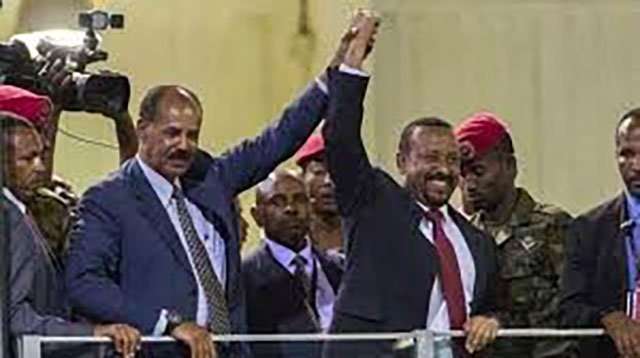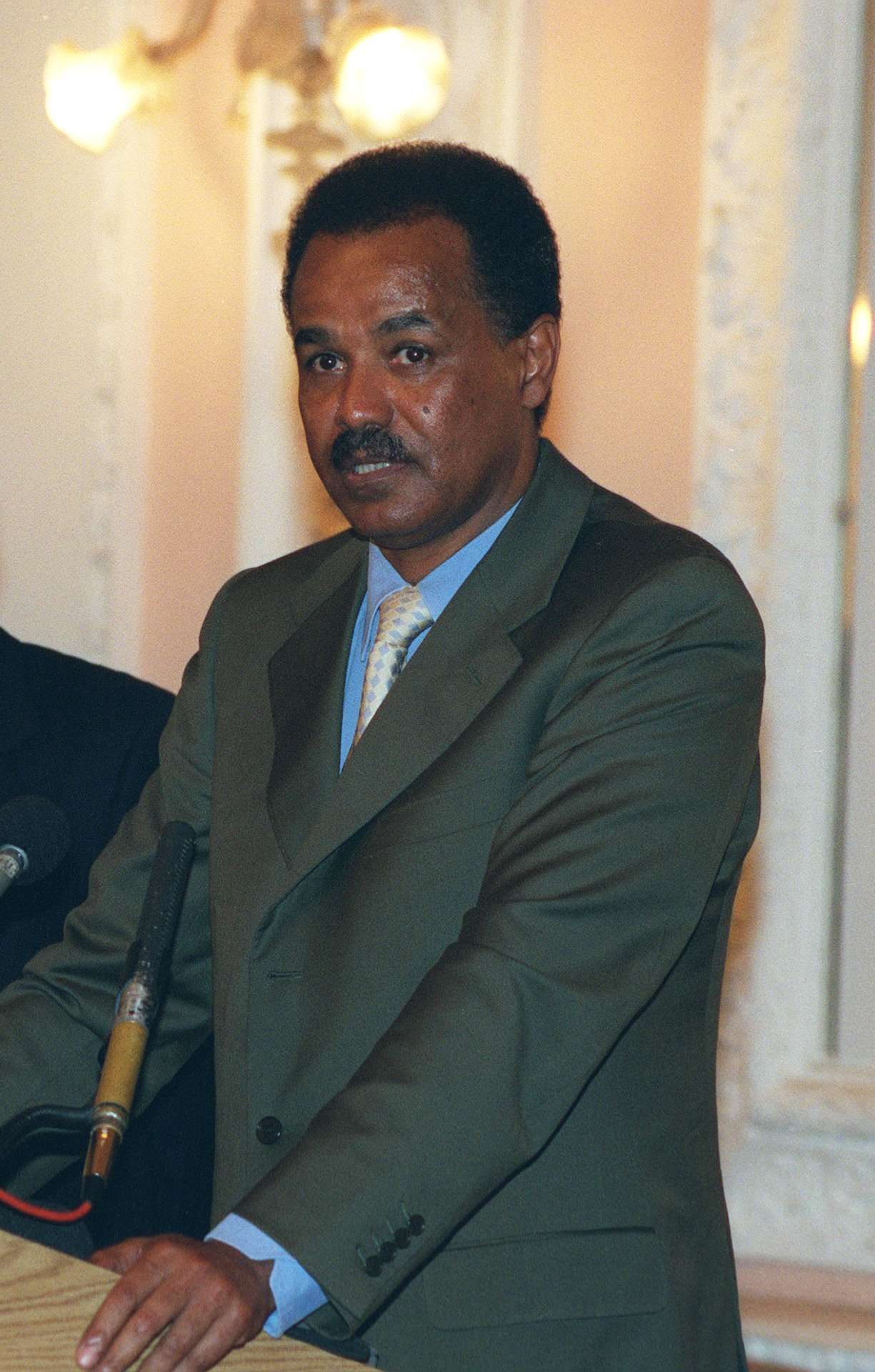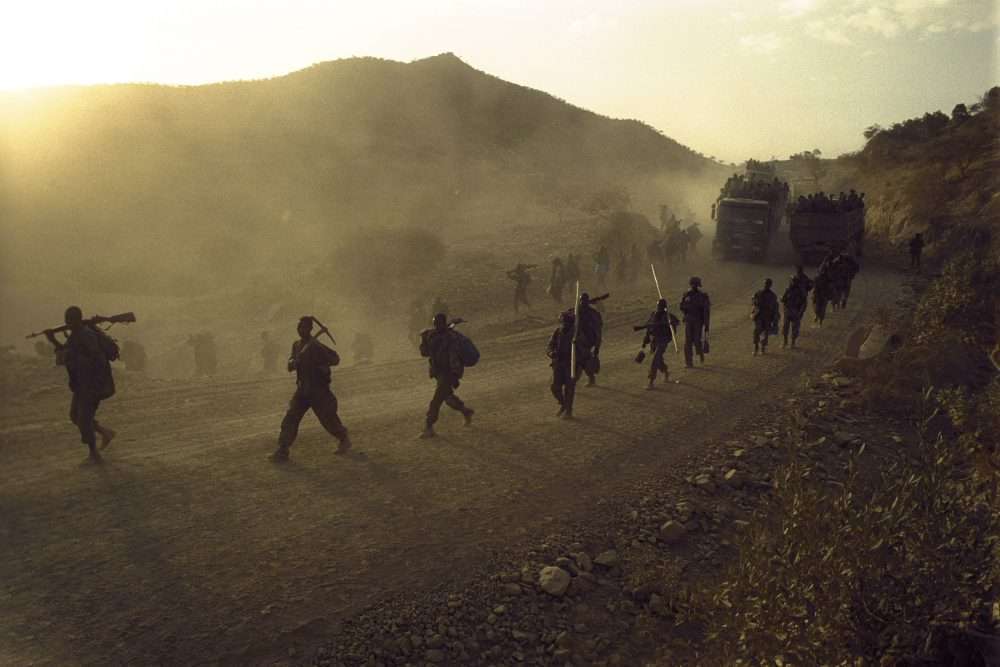
Dr. Ali Said Faqi*
On May 24, 2023, Eritrea celebrated its 30th anniversary of independence. That was a significant milestone for the country. Eritrea gained independence from Ethiopia on May 24, 1991, after a 30-year-long struggle for liberation.
Eritrea has made significant progress in various areas since gaining independence. For example, the country has made significant strides in improving its education, healthcare system, and infrastructure. The government has also implemented policies to promote economic growth and development, which has helped to reduce poverty and improve the quality of life for its citizens.
Ever since 2018, I have had the pleasure of frequenting Eritrea and exploring its numerous regions, all while developing a deep admiration for its vibrant community, rich heritage, and breathtaking scenery. This article delves into the triumphant accomplishments that Eritrea has attained since gaining its independence. Will begin with Eritrea’s policy on self-reliance, also known as the “self-reliance strategy”. This is a guiding principle of the country’s economic development. The policy was introduced in the early 1990s.
Self-reliance strategy
The self-reliance strategy aims to promote economic independence and reduce reliance on foreign aid and external assistance. It emphasizes the development of local resources, including human capital, natural resources, and local industries. The policy also prioritizes the development of local infrastructure, such as roads, energy, and water supply, as well as the promotion of agriculture and other domestic industries.
To execute the self-reliance strategy, Eritrea has implemented a number of policies and programs, including land reforms, investment in education and healthcare, and the promotion of small and medium-sized enterprises. The government has also worked to attract foreign investment in key strategic sectors, such as mining and energy while maintaining a strong role in the management of these industries.
Eritrea has been investing heavily in infrastructure projects in recent years. Some of the major projects include the construction of new roads, bridges, and airports, as well as the expansion of existing ports and railways. These projects are aimed at improving transportation and connectivity within the country, as well as boosting economic growth and development. Additionally, there are plans to build new hospitals, schools, and other public facilities to improve the quality of life for Eritreans.
Foreign Policy
Eritrea’s foreign policy is guided by the principles of non-alignment, regional integration, and the promotion of African unity. The country’s foreign policy is largely focused on regional issues, particularly those related to the Horn of Africa.
One of the key priorities of Eritrea’s foreign policy is the promotion of regional peace and stability. The country has been involved in a number of peace initiatives in the region, including the peace agreement between Ethiopia and Eritrea in 2018.
Eritrea has also sought to strengthen its relations with neighboring countries, including Somalia, Sudan, Ethiopia, and Yemen. The country has signed a number of bilateral agreements with these countries, covering areas such as trade, investment, and security cooperation.
At the international level, Eritrea has been critical of what it sees as Western interference in African affairs. The country has been a vocal supporter of African unity and advocates for greater African representation in international organizations such as the United Nations.
Eritrea has faced a number of sanctions imposed by the United Nations and other countries over the years. The most significant of these is the UN sanctions, which were imposed in 2009 in response to a false allegation of Eritrea’s support for Al-Shabab in Somalia. The sanctions include an arms embargo, a travel ban on certain Eritrean officials, and the freezing of assets belonging to individuals and entities associated with the government. The Eritrean government has strongly denied the allegations and has criticized the sanctions as being politically motivated. On the international stage, the government has relentlessly argued that the sanctions are having a negative impact on ordinary Eritreans, who have been denied access to basic goods and services. Despite the politically motivated sanctions, Eritrea has continued to pursue its foreign policy goals, including promoting regional peace and stability and strengthening its relations with neighboring countries.
Social Cohesion

In Eritrea, social coherence is strong due to the country’s strong sense of national identity and shared history of struggle for independence. This is reflected in the country’s strong sense of community and support for one another, as well as the high level of trust between individuals and institutions. There are many positive impacts of strong social coherence in Eritrea. For example, it has helped to create a stable and peaceful society with low crime rates and zero incidences of social unrest. It has also allowed for effective governance and the implementation of policies that benefit the entire society, such as universal healthcare and education. Additionally, it has helped to foster a strong sense of national pride and unity, which has been key to Eritrea’s continued development and progress.
Education
Education has been a top priority in Eritrea since gaining independence. The government has made significant investments in education, which has helped to improve literacy rates and access to education in the country. Eritrea has a 5-4-3-4 system of education, which includes five years of primary school, four years of junior secondary school, three years of senior secondary school, and four years of tertiary education.
Compulsory education in Eritrea is mandated by law for all children between the ages of 7 and 16. The government of Eritrea has made significant efforts to ensure that every child has access to education, and the country has achieved remarkable progress in this area.
The Education Proclamation of 1991 established the legal framework for education in Eritrea, including the requirement for compulsory education. The government has also implemented policies and programs to ensure that children in remote and disadvantaged areas have access to education.
Primary education in Eritrea is free and compulsory for all children, and the government has made significant investments in building schools and improving the quality of education. The curriculum includes subjects such as mathematics, science, social studies, and languages.
Secondary education is also provided, but it is not compulsory. Students who wish to continue their education beyond primary school must pass an entrance exam to enter secondary school. The curriculum in secondary school includes more specialized subjects such as chemistry, physics, biology, and history.
The country has made significant progress in improving access to education for girls as well. The government has implemented policies to encourage girls to attend school, such as providing free school uniforms and building schools closer to rural communities. As a result, the gender gap in education has significantly decreased, and more girls are now enrolling in schools.
Eritrea has also made strides in improving the quality of education. The government has invested in teacher training and curriculum development to ensure that students receive a high-quality education. As a result, Eritrean students perform well in international assessments such as the Trends in International Mathematics and Science Study (TIMSS).
Health Care System
Eritrea has made significant progress in improving its health system since gaining independence in 1991. The government has prioritized healthcare as a fundamental human right and has invested heavily in the health sector. Eritrea has implemented a comprehensive health system that includes primary healthcare, community health services, and specialized healthcare services.
The government has made significant investments in infrastructure, including building hospitals and clinics across the country. Eritrea has also trained and deployed more healthcare workers to improve access to healthcare services in remote and underserved areas. As a result, there has been a significant increase in the number of health facilities and healthcare workers in the country.
Eritrea has also realized several health programs to address specific health challenges. For example, the country has implemented a comprehensive malaria control program, which has significantly reduced the incidence of malaria. Programs to prevent and control the spread of diseases such as tuberculosis, and HIV/AIDS have been devised. These programs include the provision of antiretroviral therapy and the implementation of tuberculosis control measures. Likewise, it has executed a successful immunization program, which has helped to reduce the incidence of vaccine-preventable diseases.
Eritrea’s public health policy stipulates free basic healthcare services to all citizens. The government has established health centers and clinics across the country to provide primary healthcare services, including immunization, maternal and child health, and treatment of common illnesses. It has also prioritized the reduction of maternal and child mortality rates by implementing programs to improve maternal healthcare, including the provision of prenatal care, skilled birth attendants, and postnatal care.
Another important policy is the promotion of public health awareness. The government has implemented programs to promote healthy lifestyles, including campaigns to encourage physical activity, healthy eating, and smoking cessation. It also provides education about the importance of hygiene and sanitation to prevent the spread of diseases.
Food and Water Security
Eritrea has made significant efforts to achieve food security in the country. Despite being a small country with limited resources, the government has realized various policies and programs to improve agricultural production and food availability.
One of the key strategies that the government has employed is to promote sustainable agriculture. This involves the use of environmentally friendly farming practices that conserve natural resources such as water and soil. The government has also provided farmers with improved seeds, fertilizers, and other inputs to increase crop yields.

Eritrea has also invested in irrigation infrastructure to increase the amount of land available for cultivation. The government has built dams, reservoirs, and other water management systems to increase water availability for irrigation.
To address the issue of food insecurity in remote and underserved areas, the government has instigated programs to improve access to food. Eritrea has also implemented policies to promote food self-sufficiency. This involves reducing dependence on food imports by promoting domestic production. The government has employed policies to support farmers and increase their productivity, which has led to a reduction in the amount of food imports.
Eritrea’s government has recognized the importance of water security and has adopted policies aimed at improving access to clean water and managing water resources sustainably. The National Water Resource Management Policy, adopted in 2014, outlines strategies for improving water management, including promoting water conservation, increasing access to clean water, and establishing effective water governance structures. The government has also established the Ministry of Land, Water, and Environment to oversee water management and conservation efforts.
Eritrea has over 700 dams including the Gash Barka Dam, the Mai Nefhi Dam, and the Adi Halo Dam. These dams provide irrigation for crops and also generate hydroelectric power.
The Gash Barka Dam is located in western Eritrea and was completed in 2005. It has a capacity of 1.6 billion cubic meters of water and generates up to 20 MW of electricity. It is primarily used for irrigation and has helped increase agricultural production in the region.
The Mai Nefhi Dam is located near the capital city of Asmara and was completed in 1998. It has a capacity of 17 million cubic meters of water and generates up to 3 MW of electricity.
The Adi Halo Dam is located in the Southern Red Sea region and was completed in 2002. It has a capacity of 120 million cubic meters of water and generates up to 10 MW of electricity. The Mai Nefhi and the Adi Halo dams are primarily used for irrigation as well.
In conclusion, Eritrea is known for its strong commitment to economic, and social development, self-reliance, and sovereignty. Overall, Eritrea’s vision is centered around promoting the well-being and prosperity of its people, while maintaining its independence and sovereignty. By keeping these strategies in perspective, Eritrea is ready to embrace a more promising and prosperous future.
- Dr Ali Said Faqi is the Former Ambassador of Somalia in EU and Benelux
(Associated Medias) – Tutti i diritti sono riservati
